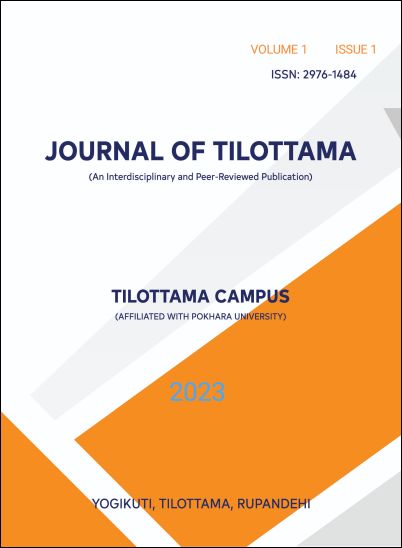Politics of Memory and Trauma in Parashu Pardhan’s Sitas - 23 and Padmabati Singh’s The Silence of Violence
DOI:
https://doi.org/10.3126/jtilottama.v1i1.64560Keywords:
Demonization, Insurgency, Ethical, Ideology, Memory, TraumaAbstract
The paper attempts to analyze the cultural politics of memory and trauma in Parashu Pardhan’s “Sitas - 23” and Padmabati Singh’s “The Silence of Violence.” In doing so, the paper, as an interpretive inquiry, utilizes as its analytical tools, insights from the theorists such as Dominick Lacapra, Cathy Caruth, Avishai Margalit, Geoffrey Hartman on psychological trauma and the politics of memory and trauma. As a qualitative inquiry, the paper is based, largely on, secondary sources such as books, journal articles and online sources. The purpose of this study, rather than discover new things, is to offer new interpretations on the topic which has been often ignored in the existing state of art. These storis recount the experiences of trauma and the narrativization against the Nepalese Maoists during the “People’s War.” The point of departure, taken in this paper, is that the memory of the stories is contaminated by the cultural ideologies during the Maoist Insurgency (sometimes termed as People’s War). Memories of the characters represented in the stories, thus, takes an ethical turn and becomes a part of the larger ideological politics. Their narrativization of the ideology-contaminated traumatic memory uses the language of demonization.
Downloads
Downloads
Published
How to Cite
Issue
Section
License
Copyright (c) 2023 Tilottama Campus

This work is licensed under a Creative Commons Attribution-NonCommercial 4.0 International License.
This license enables reusers to distribute, remix, adapt, and build upon the material in any medium or format for noncommercial purposes only, and only so long as attribution is given to the creator.




